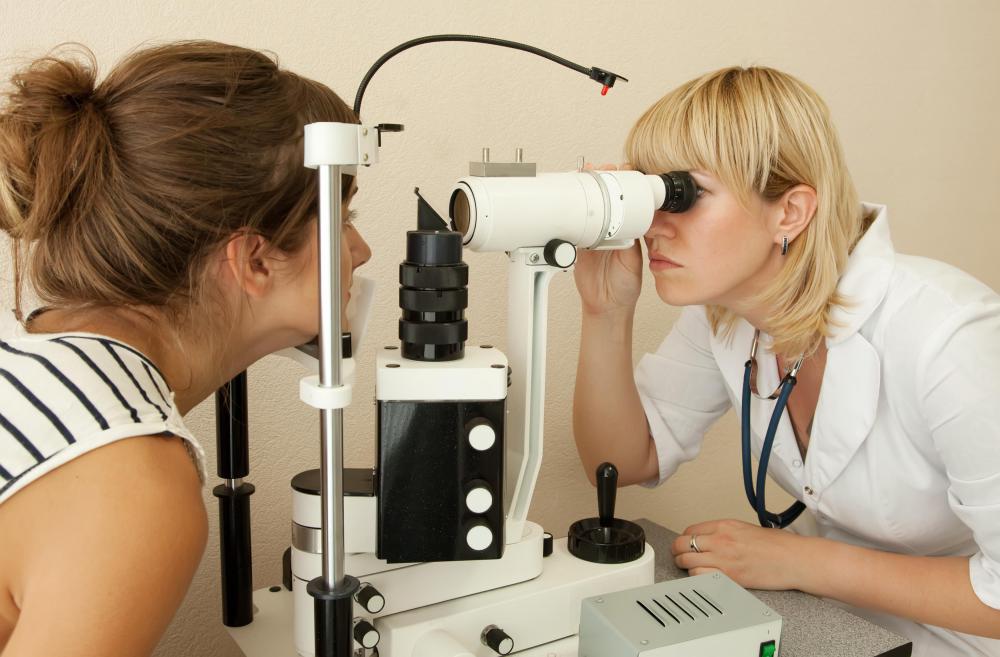At TheHealthBoard, we're committed to delivering accurate, trustworthy information. Our expert-authored content is rigorously fact-checked and sourced from credible authorities. Discover how we uphold the highest standards in providing you with reliable knowledge.
What is Leber Congenital Amaurosis?
Leber congenital amaurosis is a very rare genetic disease that affects the eyes. Infants born with the disorder may be entirely blind or severely limited in their visual abilities. In addition to vision problems, Leber congenital amaurosis can cause physical symptoms such as cataracts, misshapen pupils, and jerking eye movements. There are currently no proven treatments for the condition, and patients can expect to experience challenges throughout their lives. Low-vision aids, special education programs, and support from friends and family can help children with the disorder learn to overcome many of their problems and eventually become independent, productive individuals.
Researchers have identified more than one dozen genes that contribute to proper eye development and functioning, and Leber congenital amaurosis can be correlated with mutations of any one of the genes. The disease has an autosomal recessive pattern of inheritance, which indicates that both parents must be carriers of the same mutated gene in order for their child to inherit the condition. The type and severity of symptoms can vary depending on which particular gene is involved.

Most infants who inherit Leber congenital amaurosis have some visual response at birth, and problems may not become noticeable for several weeks or months. Parents might first start to worry when their babies fail to respond to visual stimuli or changes in brightness. The eyes may appear cloudy or red most of the time, and the pupils may wander from side-to-side or in a circular pattern. Nystagmus, or sudden unprovoked jerking motions of the eyes, is common. For reasons that are not entirely clear, infants and young children with Leber congenital amaurosis are also prone to constantly poking, rubbing, or hitting their eyes with their hands.

A pediatric specialist can diagnose Leber congenital amaurosis with a series of exams. The retinas are carefully inspected to see if they are unusually shaped or have irregular pigmentation patterns. The eyes are also exposed to electric impulses to measure their sensitivity and determine just how well an infant patient can see. Genetic blood tests may be performed to confirm the presence of mutated genes.

Treatment measures are determined based on the severity of the patient's symptoms. If a patient retains some of his or her sight into childhood, a doctor may prescribe glasses and help the parents make special education arrangements. There are many public and private programs available to help children with vision problems obtain quality educations. Dedicated research is currently underway in hopes of uncovering effective surgical procedures and medicines that can help people with Leber congenital amaurosis in the future.
AS FEATURED ON:
AS FEATURED ON:














Discuss this Article
Post your comments